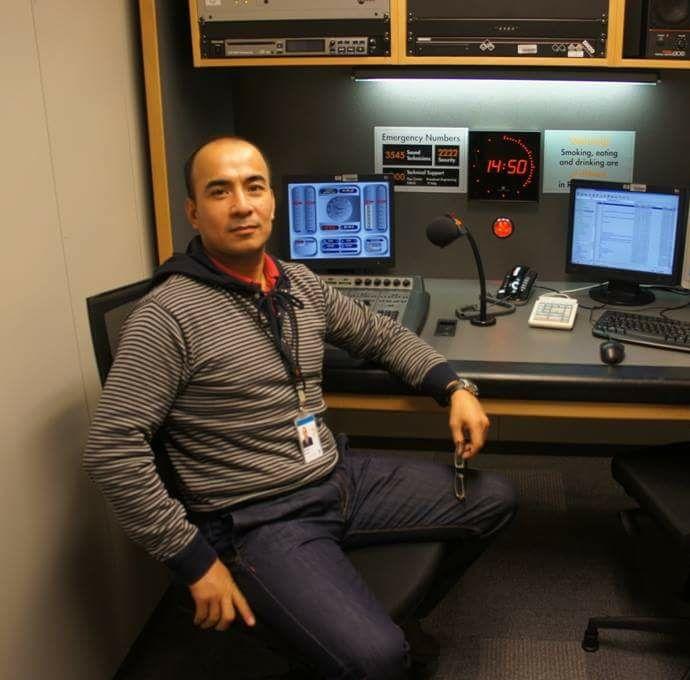Stockholm, May 26, 2021 – Turkmen authorities must immediately end the practice of harassing exiled journalists’ family members and allow all Turkmen journalists based abroad to return to the country and report in safety, the Committee to Protect Journalists said today.
On a number of occasions between March and May this year, officers of the Ministry of National Security harassed and threatened the relatives of Rozybai Jumamuradov, a reporter working with the independent Vienna-based news site Khronika Turkmenistana, and Devlet Bayhan, a journalist who also collaborates with the same outlet, according to reports by Khronika Turkmenistana, a joint statement by four local and international human rights organizations, and Jumamuradov and Bayhan, who spoke to CPJ in a video interview and by messaging app.
In one episode at the start of May, security officers summoned Jumamuradov’s 14-year-old nephew and questioned him about his contact with his uncle, shouting at the boy and threatening to jail him and his family and kill Jumamuradov, the journalist told CPJ.
Bayhan and Jumamuradov have been forced to live and work outside of Turkmenistan since 1994 and 2011, respectively, out of concern for their own safety and liberty, they said.
“The abhorrent practice of exerting pressure on journalists in exile by harassing their family members back home must stop immediately,” said Gulnoza Said, CPJ’s Europe and Central Asia program coordinator, in New York. “Instead of diverting vast resources into tracking and persecuting critical voices, Turkmen authorities should focus on addressing the serious social and political issues that these voices raise.”
On April 21, unidentified individuals repeatedly phoned the home of Jumamuradov’s brother in the Saýat District of Turkmenistan’s Lebap Region and threatened to kill his family if they did not stop communicating with the journalist. Five days later, national security officers summoned and questioned his brother about his contact with Jumamuradov, according to those reports and Jumamuradov.
On May 4, a national security officer telephoned the school at which his brother’s 14-year-old son studies and told the school’s director to immediately bring the boy to the local police station; two national security officers and a police inspector then questioned the boy for over an hour without a lawyer and without informing his family.
They then summoned the boy’s mother, questioned and threatened her too, and took mug shots of both before releasing them, according to the same sources.
On May 17, following the publication on May 13 of a statement by the four human rights groups on the boy’s treatment, the school director told Jumamuradov’s 16-year-old niece that she could “forget about good grades” in upcoming exams on account of her contact with her uncle and the May 13 statement, according to a report by Khronika Turkmenistana and Jumamuradov.
Bayhan told CPJ that national security officers have called on his relatives in the Mary Region of southeastern Turkmenistan on numerous occasions since March 24, threatening to “make their lives hell” unless they convinced Bayhan to quit his journalism and opposition activities. Two of his relatives were fired from their jobs in early April in retaliation for his continued criticism, he said, and officers warned one of his family members, whose son serves in the army, that their son might not return alive unless Bayhan gives up his activities.
CPJ emailed the Interior Ministry of Turkmenistan for comment, but did not receive any reply. CPJ called the Ministry of National Security of Turkmenistan on numbers listed on the internet, but the calls did not connect or were not answered.
Devlet Bayhan has lived and worked outside of Turkmenistan since becoming involved in Turkmen opposition politics as a student in Turkey in 1994. Between 2012 and 2019, he worked as a correspondent for the Turkmen service of the U.S. Congress-funded Radio Free Europe/Radio Liberty (RFE/RL), locally known as Azatlyk, and now runs the independent YouTube channel Turkmenim, where he conducts interviews and regularly criticizes the Turkmen authorities. Bayhan told CPJ that he is currently applying for refugee status in Germany after being subjected to threats from Turkmen security services and pressure from Turkish authorities over his activities while in Turkey.
Rozybai Jumamuradov worked as a correspondent for Azatlyk in Turkmenistan from 2009 until 2011, when mounting government pressure and physical attacks forced him to flee to Turkey, where he continued working with the outlet until 2019, he said. Besides hisreporting for Khronika Turkmenistana, he also collaborates with Bayhan on Turkmenim, offering political commentary there. He told CPJ that he does not feel safe in Turkey and is forced to frequently change address to evade the Turkmen security services, and said that Turkmen authorities have questioned his family members about his work on multiple occasions.
The harassment of exiled activists’ relatives has become a common occurrence in Turkmenistan, according to reports by human rights organizations. Farid Tuhbatullin, founder of Khronika Turkmenistana and director of the non-governmental Turkmen Initiative for Human Rights, told CPJ in a video interview that the Turkmen authorities have increasingly turned to such tactics over the last year out of fear of the worsening economic situation and COVID-19 and the resulting growth in migrant activism abroad.
